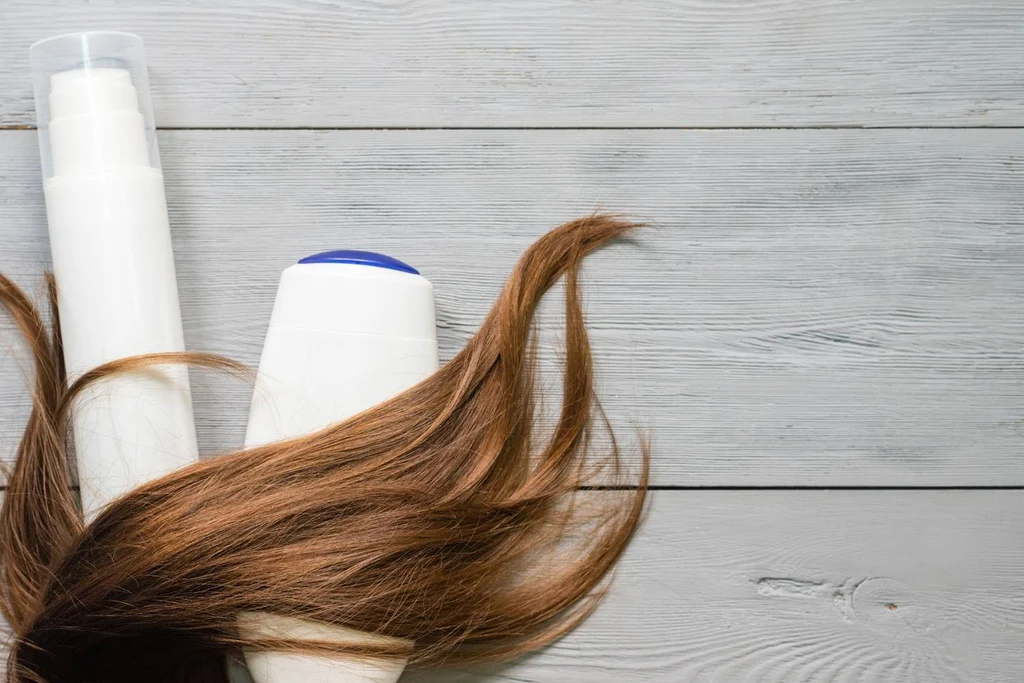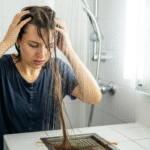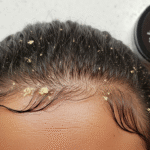Worried your shampoo or conditioner is making your hair fall out? You’re not alone in asking: does dimethicone cause hair loss? This common ingredient appears in countless hair products and often raises concerns due to buildup, scalp issues, and fear-based claims. In this medically reviewed guide, we’ll explore whether dimethicone is truly harmful, when it …
Worried your shampoo or conditioner is making your hair fall out? You’re not alone in asking: does dimethicone cause hair loss? This common ingredient appears in countless hair products and often raises concerns due to buildup, scalp issues, and fear-based claims.
In this medically reviewed guide, we’ll explore whether dimethicone is truly harmful, when it might be problematic, and how to choose the right haircare routine for your scalp and strands.
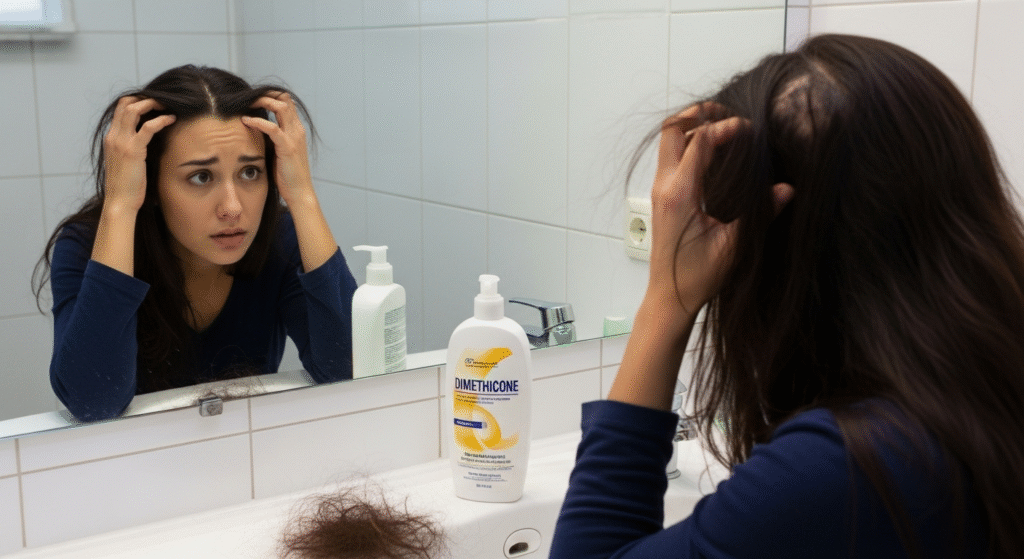
What Is Dimethicone and Why Is It in Hair Products?
Dimethicone is a silicone-based polymer used in hair care for its ability to smooth, coat, and protect the hair shaft. It’s found in:
- Shampoos
- Conditioners
- Leave-in treatments
- Anti-frizz serums
Benefits include:
- Easier detangling
- Enhanced shine
- Moisture retention by sealing the cuticle
- Reduced frizz and static
It works by forming a lightweight barrier on the surface of each strand, giving hair a soft and glossy finish.
Does Dimethicone Cause Hair Loss?
Scientifically, dimethicone does not directly cause hair loss. It is considered non-toxic and non-comedogenic, meaning it doesn’t clog pores or block hair follicles under normal use.
However, some indirect factors might contribute to issues:
- Improper rinsing can lead to buildup, causing hair to feel heavy or greasy
- Excess buildup may trap dirt and oil on the scalp, leading to irritation or inflammation
- If scalp health declines, this may indirectly contribute to shedding
[Medical Reviewer Note Needed Here]
In most cases, hair fall after using a dimethicone product is related to poor rinsing, incompatible product use, or unrelated scalp issues.
Common Concerns and Criticisms of Dimethicone
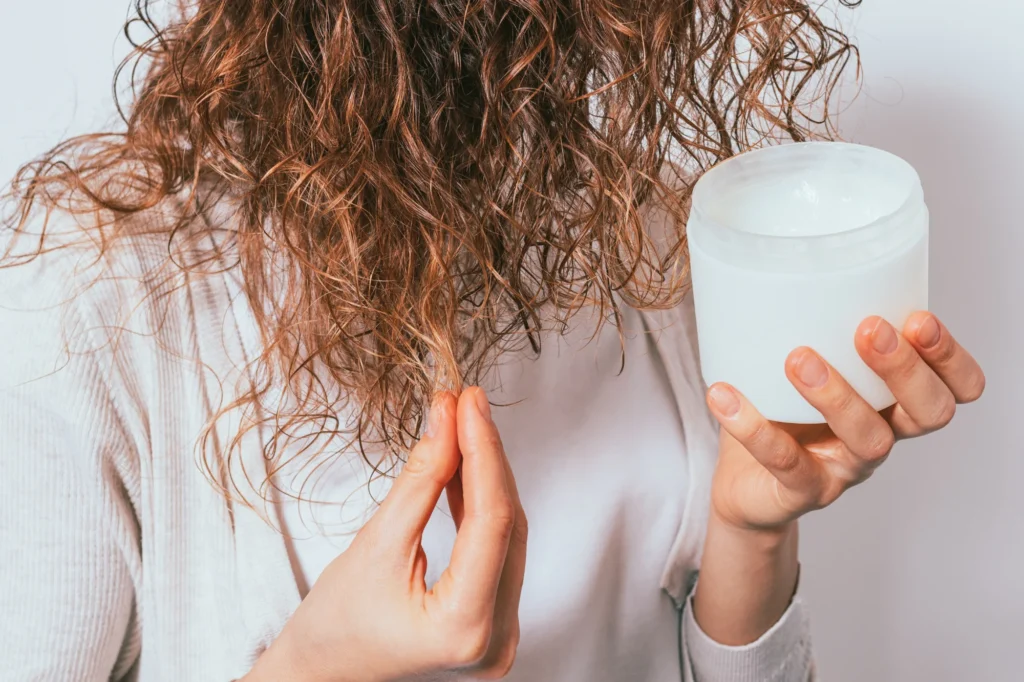
Let’s address some frequently cited worries:
1. Product Buildup Dimethicone is not water-soluble unless modified (e.g., PEG-12 dimethicone). Regular use without clarifying washes may cause accumulation.
2. Follicle Blockage Contrary to myth, dimethicone sits on the strand—not inside the follicle. It does not suffocate hair follicles or scalp skin.
3. Natural Hair Community Backlash Many “clean beauty” or natural haircare brands warn against dimethicone. However, much of this is marketing-driven rather than evidence-based.
4. Breakage Misinterpreted as Hair Loss Hair may snap due to styling stress, not scalp-related fallout. Dimethicone can sometimes mask damage by coating strands.
Who Might Be Sensitive to Dimethicone?
While dimethicone is safe for most, a few groups may experience side effects:
- Those with sensitive or oily scalps may find buildup increases itchiness
- People with fine hair may feel weighed down or greasy
- Curly or textured hair types sometimes require more breathable, water-based moisture systems
- Anyone with dermatitis, psoriasis, or dandruff should monitor their reactions closely
What Experts Say About Dimethicone and Hair Health
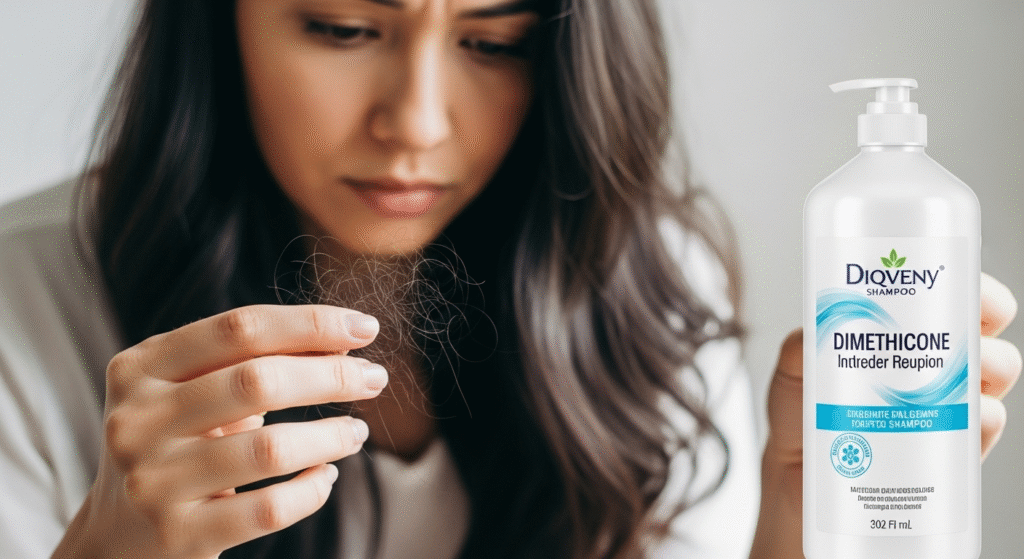
Dr. Sana Farooq, a cosmetic dermatologist, notes: “Dimethicone is inert, safe, and widely tested. Most people tolerate it well, but proper product use and rinsing are essential.”
Scientific reviews back this up:
- Dimethicone is approved by the FDA and widely used in personal care
- It is non-irritating and non-sensitizing for the vast majority of users
- No peer-reviewed study directly links it to follicular damage or clinical alopecia
Alternatives to Dimethicone (for Sensitive Scalps)
If you suspect sensitivity or prefer to avoid silicones, consider these:
- Water-soluble silicones: like PEG-8 dimethicone
- Natural oils: jojoba, argan, coconut oil
- Film-forming humectants: aloe vera, flaxseed gel
- Protein treatments: hydrolyzed wheat protein, silk amino acids
Pro Tip: Transitioning to a silicone-free routine may require 2–3 weeks of detox and clarifying shampoos.
How to Identify Dimethicone in Products
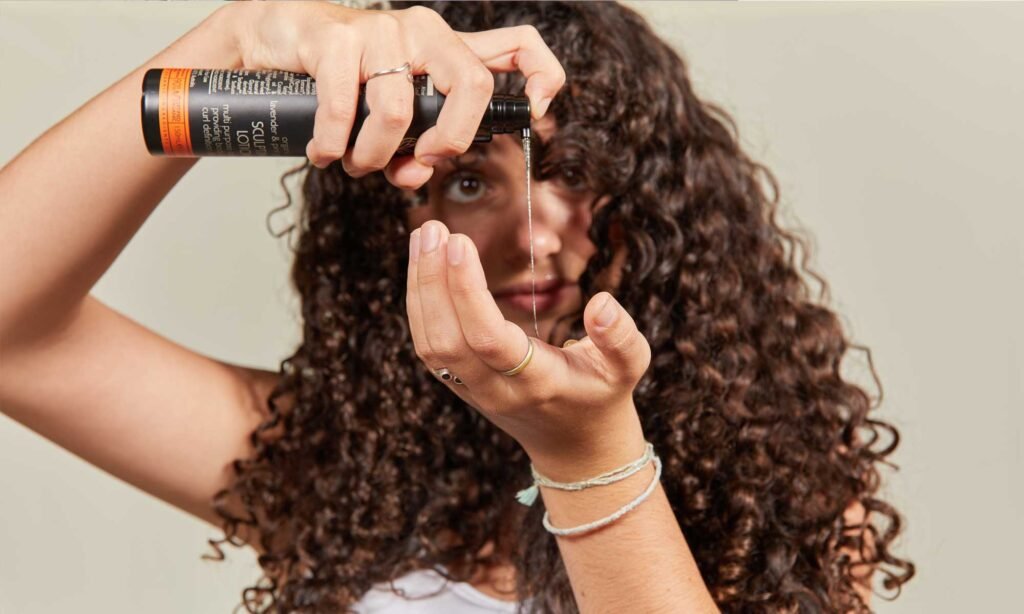
Check labels for:
- Dimethicone
- Amodimethicone
- Cyclopentasiloxane
- PEG-modified silicones
Helpful tools:
- Ingredient scanning apps (e.g., INCI Decoder, Think Dirty)
- Manufacturer websites listing product compositions
FAQs
Can dimethicone clog hair follicles?
No. It coats hair shafts, not pores or follicles.
Is dimethicone bad for curly hair?
It depends. Some curly-haired individuals love the slip it provides, while others avoid it due to buildup concerns.
How often should I use products with dimethicone?
As needed. Clarify once a week if used regularly.
Does dimethicone build up over time?
Yes, especially non-water-soluble versions. Clarifying shampoos help.
How can I remove silicone buildup from hair?
Use a sulfate-based or chelating shampoo weekly.
Conclusion
So, does dimethicone cause hair loss? No, not directly. But poor usage habits, buildup, or scalp sensitivity might contribute to indirect shedding. Most people can safely use dimethicone-based products with proper rinsing and occasional clarifying care. For persistent hair issues, consult a dermatologist to rule out underlying causes.

